Blackpool mourned with Manchester United
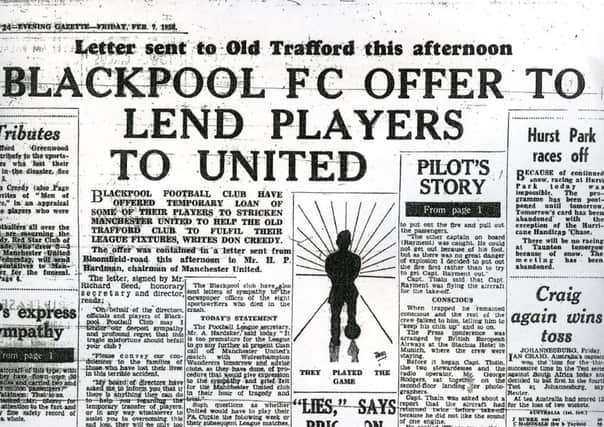

The Munich Air Disaster, on February 6, 1958, claimed the lives of 23 people – including a number of the famous “Busby Babes” Manchester United team.
The crash destroyed the nucleus of one of the most promising generations in the game.
Advertisement
Hide AdAdvertisement
Hide AdIt took 10 years for United to recover, with the team having to be rebuilt.
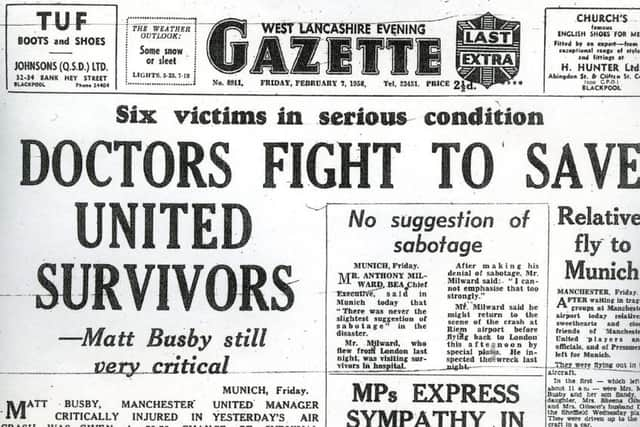

The crash was initially blamed on pilot error, but it was later found to have been caused by slush towards the end of the runway which had slowed the aircraft and prevented take-off.
The Man Utd team was returning home – on a chartered BEA Elizabethan airliner – from its 3-3 draw in a European Cup quarter-final game against Red Star Belgrade, in what was then Yugoslavia.
United had won 5-4 on aggregate, ensuring a place in the semi-finals.
Advertisement
Hide AdAdvertisement
Hide AdThe flight stopped to refuel in Munich because a non-stop flight from Belgrade to Manchester was beyond the Elizabethan-class Airspeed Ambassador’s range.
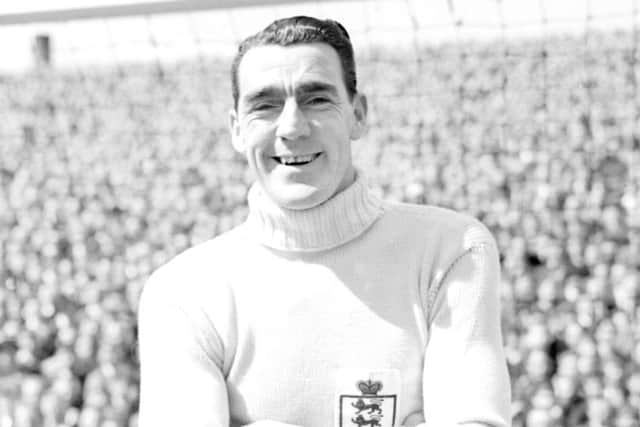

With conditions becoming increasingly wintry, the pilots attempted and abandoned take-off twice – due to boost-surging from the engine. After the second failure, passengers disembarked and returned to the airport lounge, while snow began to fall heavily.
The decision was made to make a third attempt, but the plane failed to reach the sufficient speed or height and skidded off the runway. It crashed into a perimeter fence, before hitting a house. The left side of the cockpit struck a tree, and part of the fuselage hit a wooden hut, containing a truck filled with tyres and fuel, which exploded.
Twenty passengers – seven United players and 13 other people, including sports reporters – died on-board, and a further three victims died later.
Advertisement
Hide AdAdvertisement
Hide AdBlackpool, The Gazette reported, lost one of its own sons – Frank Swift, a journalist on the News Of The World.
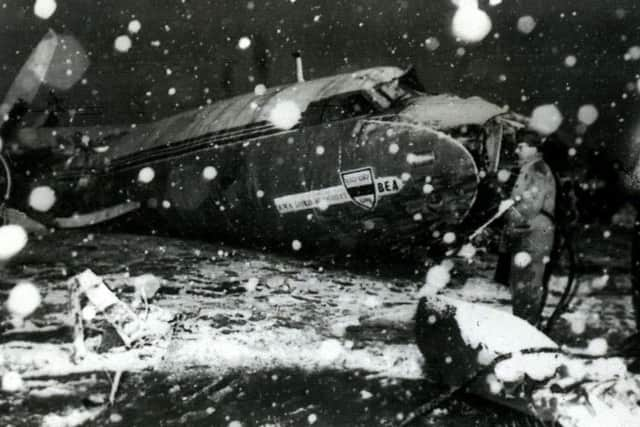

The former England and Manchester City goalkeeper, born in Blackpool on Boxing Day 1915, died on the way to hospital.
The front page of The Gazette on Friday, February 7, relayed the sad news of the crash.
It told how Manchester United manager Matt Busby was given a 50/50 chance of survival, as doctors battled to save his life. It said 15 of the 23 survivors were in hospital – six of them in a serious condition. In addition to Mr Busby, they were: John Berry – United’s outside right, who had serious shock, concussion and an eye injury; Duncan Edwards – left half, who suffered shock, broken ribs and a fractured right leg; Dennis Viollet – shock and head injuries; Jackie Blanchflower – fractured pelvis, arm fractures, broken ribs, internal injuries and shock; Frank Taylor – multiple fractures and Kenneth Rayment – the co-pilot, who had a broken leg and thigh, concussion, head and internal injuries.
Advertisement
Hide AdAdvertisement
Hide AdBerry and Blanchflower were left unable to ever play again due to their injuries.
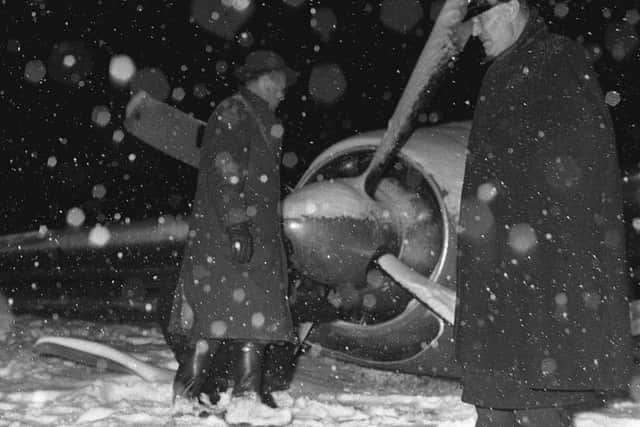

Duncan Edwards died 15 days later in hospital. Cpt Rayment died three weeks after the crash, having never recovered from a brain injury.
Bobby Charlton, who had been rescued by team-mate Harry Gregg, made a good recovery and was the first to be discharged from hospital.
As tributes poured in, The Gazette’s football writers Clifford Greenwood and Don Creedy, penned their own emotional testimonials, to pay homage to those who were lost.
Advertisement
Hide AdAdvertisement
Hide AdGreenwood wrote about his fellow sports journalists: “Blackpool – and not just the football community – mourns with Manchester today. It is so sad to think they will never again climb the wooden staircase outside the West Stand, at Bloomfield Road and sit with us in the press box.
“They were so often able to persuade their sports editors the match of the day was at Blackpool. In common with the rest of us, they were fond of Blackpool.
“For Frank Swift, it was coming home to report a Blackpool match.”
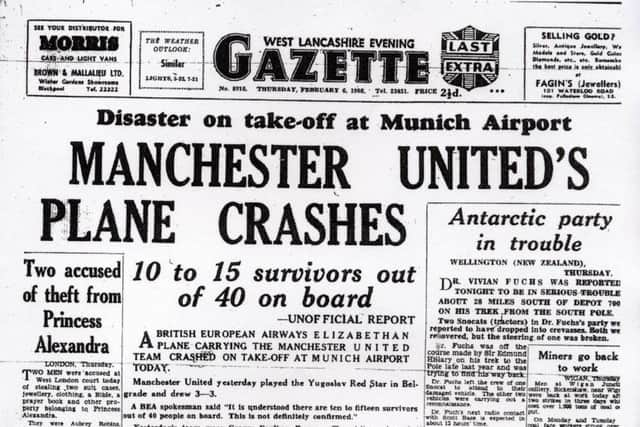

He wrote about how they would talk of the good old days when Frank was a boatman on Blackpool beach and went to Manchester City.
Advertisement
Hide AdAdvertisement
Hide AdAfter sharing his memories of each of the lost reporters in turn, he wrote: “They have all gone now, and they were such a grand and happy brotherhood. They were all such nice guys.”
Don Creedy said the Manchester United players were “men of calibre.”
Paying tribute to Roger Byrne, Tommy Taylor, Eddie Colman, David Pegg and Mark Jones, he said: “These were great players in a great team and it is hard to believe we shall never see them again.
“Their loss has dealt a crippling blow, not only to Manchester United, but also to British football.”
He went on to share his memories about each player.
Advertisement
Hide AdAdvertisement
Hide AdHe finished: “United, I am sure, will climb back again to soccer stardom, for they know how to take it on the chin at Old Trafford. But I think it will be a long time before they find the men of the calibre of the Byrnes, the Taylors and the Whelans.”
A minute’s silence was held at that weekend’s matches and players wore black armbands. Flags flew half-mast at Bloomfield Road.
The Football Association allowed the postponement of Manchester United’s FA Cup fifth round match against Sheffield Wednesday, due to take place the following week. It was moved to February 19 and the FA also waived in favour of United the rule that to be eligible newly-signed players must have been with the club at least 14 days, before the time fixed for playing a tie.
Blackpool FC offered the temporary loan of some of their players to help the stricken Old Trafford club fulfil their league fixtures.
Advertisement
Hide AdAdvertisement
Hide AdSurvivors of the crash, Bill Foukles and Harry Gregg spent a few days in Blackpool 11 days later – staying at the Norbreck Hydro with their teammates in the days leading up to the postponed match against Sheffield Wednesday, at Old Trafford.
Harry Gregg was hailed as a hero, after helping people escape from the wreckage.
Ernie Taylor, United’s latest signing from Blackpool, was among the players who came to the resort for the stay.
The players were snapped by a Gazette photographer, in training at the Norbreck, where they had also played golf, went for a walk, and swam in the hotel’s indoor pool.
Advertisement
Hide AdAdvertisement
Hide AdFormer Manchester United goalkeeper Jack Crompton – who had played against Blackpool in the 1948 Cup Final – was the new trainer-coach.
Foulkes captained the United team who beat Sheffield Wednesday 3-2 at Old Trafford that Wednesday night.
Some 60,000 people squeezed into the ground to watch and a further 10,000 hung around outside, following the course of the game.
Gazette reporter Don Creedy wrote: “Never in the long and glorious history of the FA Cup competition, can there have been a match so charged with emotion and suspense as this fifth round tie at Old Trafford. The scenes which were enacted beneath the ground’s powerful floodlights brought a lump to the throat and moistened the eyes.”
The cover of the matchday programme read “United will go on”.